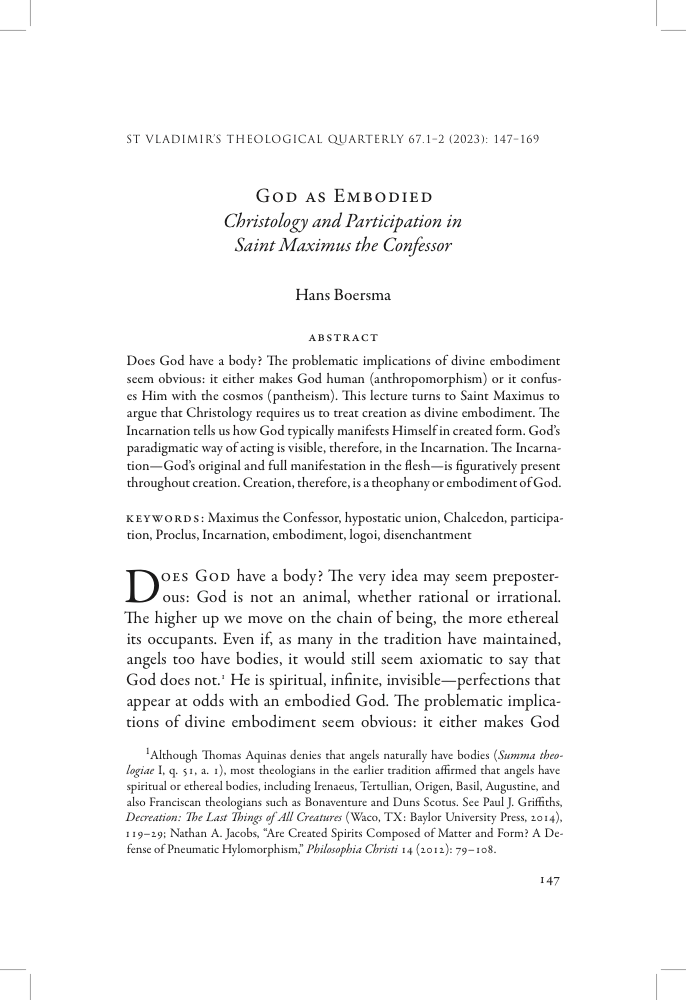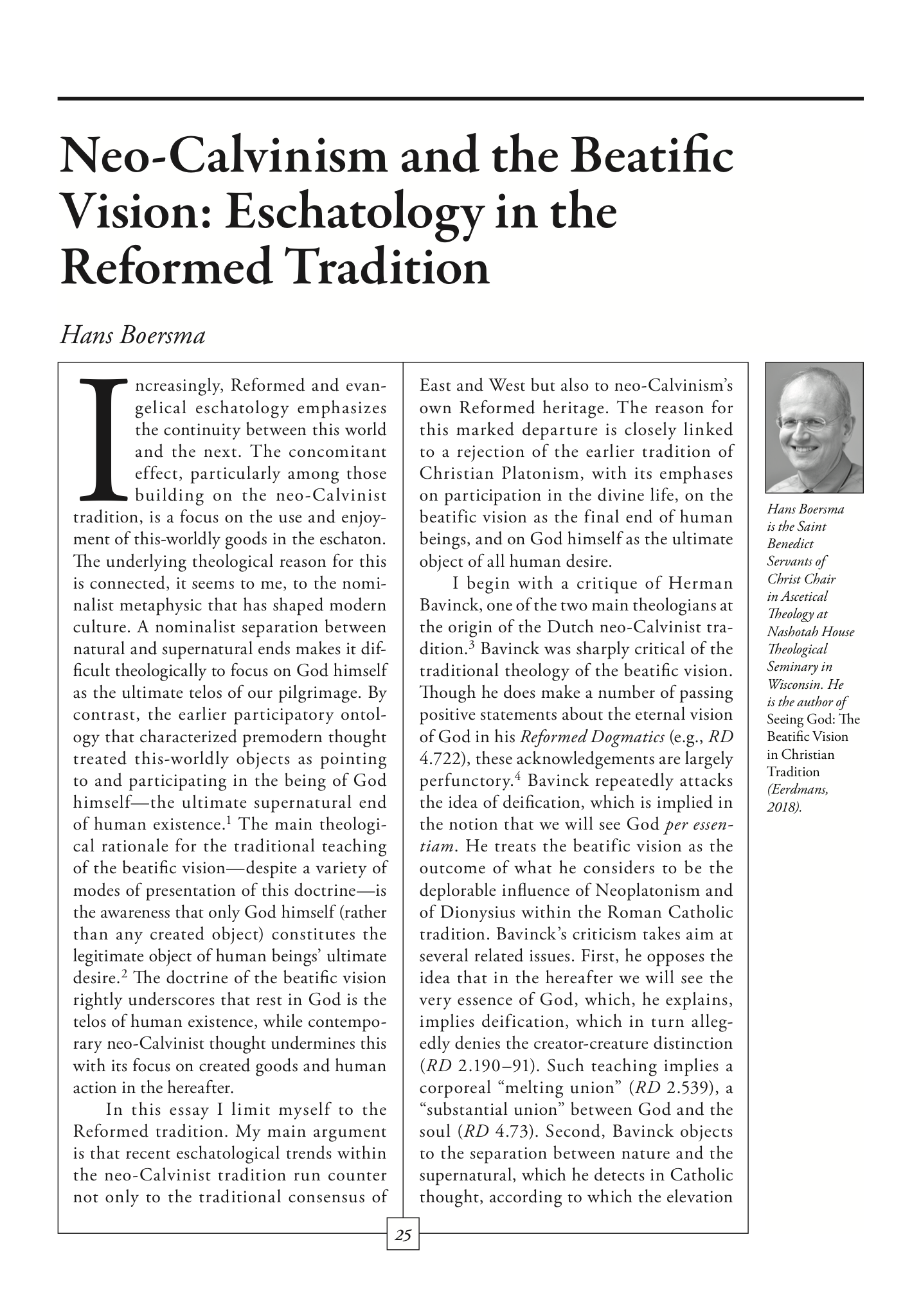Scholarly Articles
scholarly articles
Relying on Saint Maximus the Confessor, I argue that the Incarnation tells us how God typically manifests himself in created form. God's paradigmatic way of acting is visible, therefore, in the Incarnation. The Incarnation—God’s original and full manifestation in the flesh—is figuratively present throughout creation. Creation, therefore, is a theophany or embodiment of God.
“Dionysian Power: A Positively Medieval Hierarchy.” Touchstone: A Journal of Mere Christianity 36/2 (March/April 2023): 24–30.
In Dogma and Ecumenism: Vatican II and Karl Barth’s Ad Limina Apostolorum. Ed. Matthew Levering, Bruce L. McCormack, and Thomas Joseph White, 245–67. Washington, DC: Catholic University of America Press, 2020.
In this chapter I probe some of the difficulties surrounding the desire to meet “on equal footing.” I press the question of what unity means according to the Decree on Ecumenism.
Review essay. Pro Ecclesia 29 (2020): 275–84.
A review essay of Seitz’s The Elder Testament: Canon, Theology, Trinity. It is only through the acknowledgement of the ontological priority of the Christ event that the Spirit enables us to recognize the hidden, deeper meanings of the text.
International Journal of Systematic Theology 22 (2020): 169–90.
Justification typically serves for Irenaeus within a broader, participatory framework of salvation. When we take these aspects into account, unexpected ecumenical possibilities open up between Orthodox, Catholics and Protestants.
“Neo-Calvinism and the Beatific Vision: Eschatology in the Reformed Tradition.” Crux 56/3 (2020): 25–29.
Recent eschatological trends within the neo-Calvinist tradition run counter not only to the traditional consensus of East and West but also to neo-Calvinism’s own Reformed heritage.
A chapter in Embracing Contemplation: Reclaiming a Christian Spiritual Practice. Ed. John H. Coe and Kyle C. Strobel, 182–200. Downers Grove, IL: IVP Academic, 2019.
The future beatific vision is not a stage beyond the vision of Christ. Rather we see God himself when we indwell the incarnate tabernacle of God through union and communion with Jesus. The reason is simply that Christ makes the future present.
In The Book of Acts: Catholic, Orthodox, and Evangelical Readings. Edited by Charles Raith II, 23–35. Washington, DC: Catholic University of America Press, 2019.
In The Hermeneutics of Tradition: Explorations and Examinations. Ed. Craig Hovey and Cyrus P. Olsen, 3–24. Eugene, OR: Cascade, 2014.
In Reading Romans with St. Thomas Aquinas: Ecumenical Explorations. Ed. Michael Dauphinais and Matthew Levering. Washington: Catholic University of America Press, 2012. Pp. 52–74.
In Ressourcement: A Movement for Renewal in Twentieth-Century Catholic Theology.
Ed. Gabriel Flynn and Paul D. Murray. Oxford: Oxford University Press, 2012. Pp. 157–71














